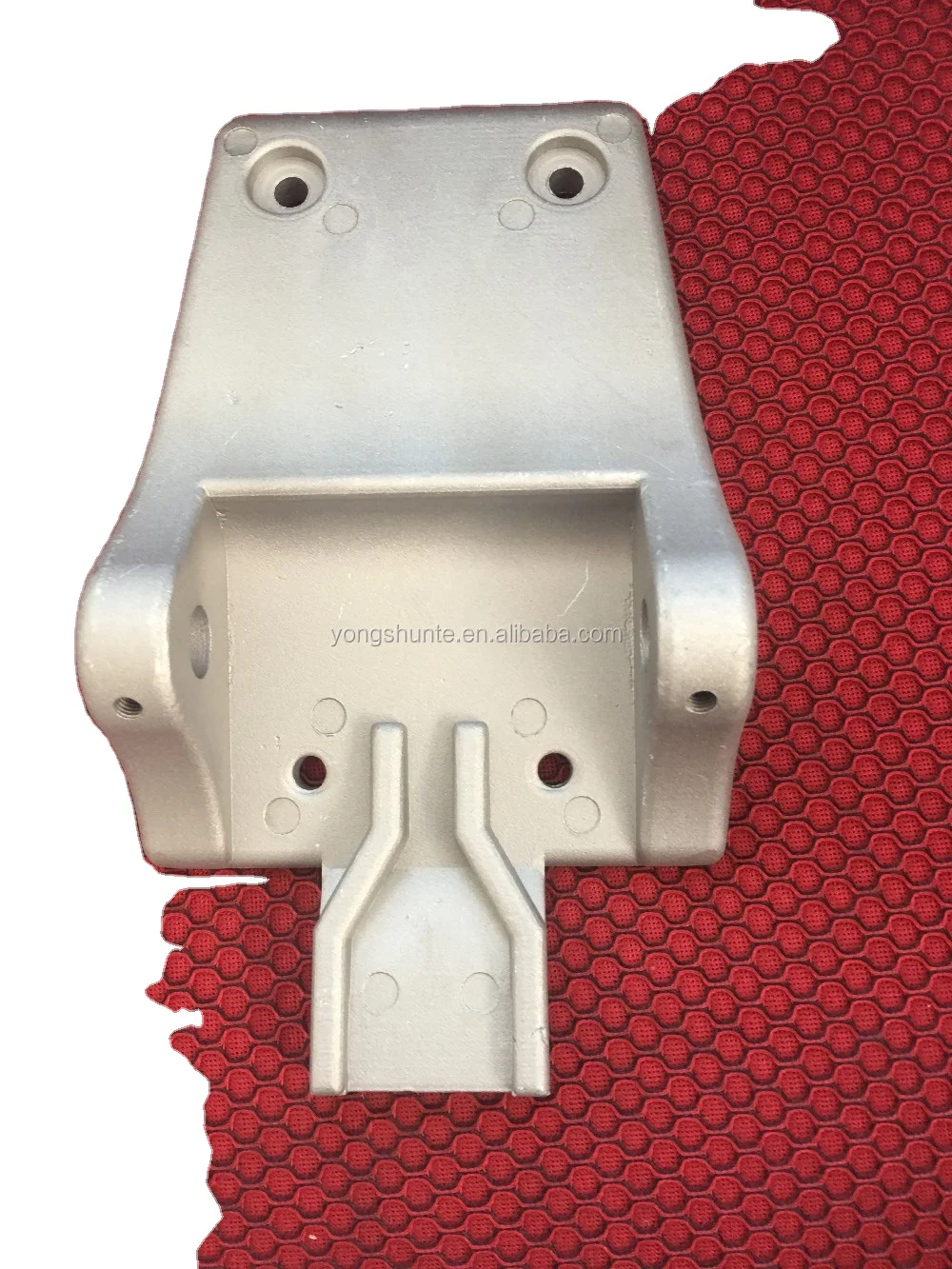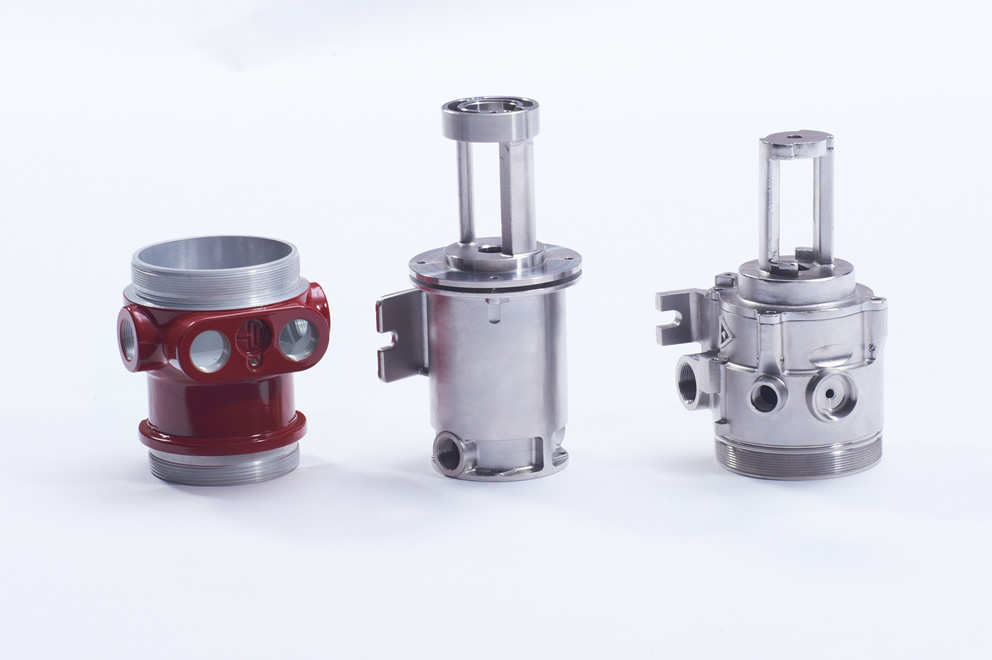The Effect of Ingenious Factory Solutions on Sustainable Production Practices
Innovative factory solutions play a crucial role in advancing lasting production techniques. By incorporating reusing technologies and energy-efficient procedures, these services substantially decrease environmental influence. Factories can redeem valuable products, thereby lowering reliance on virgin resources. As automation and lean production principles gain grip, production effectiveness is optimized. The full degree of these advancements and their implications for the future of making continue to be to be explored.
The Function of Advanced Recycling Technologies in Foundries
Advanced recycling modern technologies are transforming the landscape of foundries by improving material healing and reducing waste. These ingenious processes allow foundries to reclaim important steels and products from scrap, minimizing dependence on virgin sources. By incorporating sophisticated sorting, shredding, and melting techniques, shops can efficiently draw out usable products from thrown out items, consequently promoting a circular economic climate.
Additionally, these innovations support the production of top notch alloys and elements, making certain that recycled materials satisfy stringent sector standards (Aluminum Casting Company). As a result, shops are not only improving their material efficiency however also decreasing the ecological effect related to conventional production approaches
This shift towards advanced reusing not just boosts financial practicality for foundries but also aligns with worldwide sustainability goals. Inevitably, the consolidation of these innovations stands for a considerable step ahead in the mission for sustainable manufacturing practices within the shop market.
Energy Effectiveness: Decreasing Consumption in Production Processes
Energy efficiency in manufacturing processes is vital for lasting procedures. Approaches such as process optimization methods, renewable resource integration, and waste warmth recuperation play crucial duties in lessening energy consumption. By concentrating on these locations, suppliers can considerably reduce their ecological effect while improving efficiency.
Process Optimization Techniques
A considerable number of making facilities are increasingly adopting procedure optimization strategies to improve energy performance and reduce intake. These methods entail assessing and refining manufacturing operations, determining traffic jams, and implementing automation to enhance operations. By leveraging information analytics, makers can keep an eye on energy use in real-time, allowing positive changes to lessen waste. Strategies such as Lean Manufacturing and Six Sigma concentrate on getting rid of inadequacies and maximizing resource allowance. Additionally, advanced technologies like Web of Things (IoT) sensing units provide insights into equipment performance, assisting in predictive maintenance that stops power loss. Overall, these process optimization techniques not just add to decreased energy consumption but additionally cultivate a society of constant renovation within producing environments, aligning functional exercise with sustainability objectives.
Renewable Resource Assimilation
Many production facilities are increasingly integrating eco-friendly energy resources to boost total energy effectiveness and reduce dependence on conventional power grids. This change includes the fostering of solar, wind, and biomass power, which can substantially reduce and decrease operational prices carbon footprints. By using these lasting power sources, makers not just decrease their ecological influence but additionally boost energy durability. In addition, incorporating renewable resource systems typically involves innovative technologies such as energy storage space and smart grid options, which enhance energy use and facilitate real-time tracking. This integration sustains manufacturers in accomplishing regulatory compliance and meeting sustainability objectives while fostering technology in manufacturing procedures. Eventually, renewable resource combination stands for an essential shift towards even more sustainable production practices and lasting viability.
Waste Warmth Healing
Incorporating renewable resource sources sets the stage for further advancements in power efficiency, particularly through the implementation of waste heat healing systems. These systems catch excess thermal power created during producing processes, which would certainly or else be shed to the atmosphere. By repurposing this heat, shops can considerably minimize their power usage, reduced functional prices, and decrease their carbon impact. The recovered warm can be used for numerous applications, such as home heating, power generation, or preheating resources. As an outcome, waste heat healing not just improves power performance yet additionally adds to a lasting manufacturing design. Innovative shop services that prioritize this modern technology are leading the way for an ecologically accountable commercial landscape, straightening success with ecological stewardship.
Utilizing Eco-Friendly Materials in Factory Operations
As the demand for sustainable production practices expands, factories are significantly transforming to eco-friendly products to improve their operations. By including sustainable options, such as bio-based binders and recycled metals, shops can considerably decrease their environmental impact. These products usually need much less energy for processing and can decrease dangerous emissions during manufacturing.
Moreover, the adoption of environment-friendly products not only aligns with regulative standards however additionally satisfies customer preferences for greener products. Foundries are discovering cutting-edge options, such as making use of organic ingredients that improve mold quality while continuing to be non-toxic.
The shift to lasting materials promotes a round economic situation by promoting resource reuse and reducing waste. Furthermore, this change can enhance the total effectiveness of foundry operations, as eco-friendly materials usually show remarkable residential properties, resulting in enhanced product efficiency - Precision aluminum casting. Eventually, the application of environment-friendly materials represents a critical weblink step toward lasting production in the shop market

Technologies in Waste Management and Decrease Techniques
The shift in the direction of environmentally friendly products in shop procedures paves the method for improvements in waste monitoring and reduction techniques. Cutting-edge factory services are significantly embracing strategies that minimize waste generation and advertise recycling. Strategies such as closed-loop systems enable the reuse of products, considerably minimizing the volume of waste created during making procedures. Furthermore, innovations in purification and separation modern technologies allow the reliable recuperation of useful by-products, which can be reintegrated right into the manufacturing cycle.
The implementation of real-time surveillance systems offers data-driven understandings right into waste generation patterns, helping with informed decision-making to optimize source use. Factories are additionally discovering biowaste services, transforming organic waste into power or usable products, further advertising sustainability. These innovations not only contribute to a round economy yet additionally enhance the overall ecological efficiency of factory operations, highlighting the industry's dedication to reducing its eco-friendly impact.
The Influence of Automation on Lasting Production
While many industries objective for sustainability, automation becomes an essential consider improving sustainable manufacturing methods within factories. By incorporating automated systems, factories can accomplish higher effectiveness, minimize waste, and reduced power consumption. Automated procedures enable for accurate control over manufacturing criteria, decreasing issues and remodel, which in turn conserves sources.
In addition, automation facilitates the tracking of ecological effects, enabling real-time adjustments that line up with sustainability objectives. Aluminum Casting Company. Advanced robotics and expert system can optimize product usage, resulting in significant decreases in scrap and emissions
Furthermore, automated modern technologies promote much safer working settings by dealing with harmful jobs, thereby improving worker health while making certain compliance with ecological regulations. Generally, the fostering of automation within factories not only streamlines procedures however also plays a crucial function ahead of time sustainable production techniques, adding to a much more accountable commercial landscape.
Case Researches: Successful Execution of Lasting Factory Practices
Successful application of lasting methods in foundries can be highlighted via various study that highlight measurable end results and ingenious techniques. One notable example is a mid-sized factory that adopted a closed-loop water reusing system, minimizing water intake by 40% and reducing wastewater generation. Furthermore, this facility transformed to utilizing environmentally friendly mold and mildew materials, which not only enhanced product high quality but additionally enhanced employee safety and security.
Another substantial situation included a large foundry incorporating renewable resource resources, such as photovoltaic panels, which offset 30% of its power needs. This campaign not only decreased functional expenses however likewise added to a substantial reduction in carbon emissions.
Lastly, a factory check my reference that implemented lean manufacturing techniques reported a 25% rise in efficiency, resulting in much less worldly waste and enhanced production procedures. These situations jointly highlight the concrete advantages and sustainability innovations possible with innovative foundry techniques.
Regularly Asked Concerns
How Do Cutting-edge Shop Services Contribute to Total Sustainability Goals?
Innovative foundry services boost general sustainability goals by maximizing source use, lowering waste, and improving her explanation power effectiveness. These improvements add to reduce carbon impacts and promote eco accountable techniques within the production sector, supporting wider sustainability campaigns.
What Are the Economic Conveniences of Embracing Sustainable Foundry Practices?
Embracing sustainable shop techniques can reduce operational costs, enhance source performance, and boost competitiveness. In addition, these techniques can attract eco-conscious consumers and financiers, inevitably causing raised earnings and lasting financial viability for services.
Exactly How Can Little Factories Execute Sustainable Innovations Efficiently?
Small shops can apply lasting technologies efficiently by embracing energy-efficient modern technologies, enhancing source usage, educating staff on lasting practices, working together with vendors for environmentally friendly products, and participating in continuous renovation procedures to lower waste and exhausts.
What Qualifications Exist for Sustainable Foundry Operations?

Just How Do Customer Preferences Influence Sustainable Manufacturing in Foundries?
Customer preferences significantly affect sustainable manufacturing in factories by driving demand for eco-friendly items. As consumers prioritize sustainability, foundries adjust their methods, including greener materials and technologies to satisfy market assumptions and boost their affordable advantage.
By repurposing this heat, foundries can substantially minimize their energy consumption, reduced operational expenses, and lessen their carbon impact. Shops are likewise exploring biowaste services, converting organic waste right into power or usable products, even more promoting sustainability. By incorporating automated systems, shops can attain higher efficiency, decrease waste, and lower power usage. Another significant case included a large shop incorporating eco-friendly power resources, such as solar panels, which balance out 30% of its energy requires. Innovative shop solutions boost overall sustainability objectives by maximizing source use, reducing waste, and boosting energy performance.